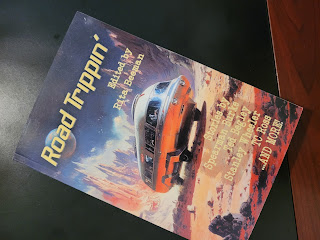Let's return to the Omnibus bill of 1850. Stephen Douglas succeeded where Daniel Webster had failed and brought the provisions through the Senate in small bites instead of at a single gulp. Getting the provisions through the House would be another battle.
The laconic and handsome Linn Boyd would spearhead the effort in the House. Howell Cobb of Georgia was Speaker of the House, which contained members who were often hot-headed and undisciplined. Cobb picked Boyd from those clamoring for attention on August 29. Boyd moved to add creation of the New Mexico and Utah Territories as an amendment to the Texas border bill. He soon dropped the Utah amendment, and argued, so that none would doubt where he stood, that he was for union and the Constitution. He proclaimed that he was for union not only as protection against foreign aggression, but "for the more important reason that it protects us from on another."
Joseph Root of Ohio wanted to add the Wilmot Proviso to the bill. McClernand rose to oppose the motion. Cobb repeatedly ruled the Southern members out of order on their attempts to delay the bill. Boyd, with Douglas' constant help, battled against the chaos that reigned in the chamber. Votes swayed back and forth. The bill's fate teetered on the edge between success and failure.
On September 5, Boyd refused to allow any more amendments to be offered for his bill for fear that they would cause the bill's demise. He moved previous question to call for a vote on the bill, but the question failed. "Long John" Wentworth of Illinois wanted to send the bill back to committee to add selected amendments. Cobb ruled that his proposed amendments could be considered separately. After an amendment calling for the Wilmot Proviso to be implemented in the new territories was voted down, Cobb ruled against a second division of Wentworth's motion, reversing his ruling on the basis that it had applied to a new motion, which Wentworth's motion had then been, but with a number of votes having taken place since, the motion was no longer new and could no longer be divided. Thus the only vote left on the motion was whether it should go back to committee. Cobb's ruling was upheld by a vote, and Wentworth's motion and amendments were defeated.
Robert Toombs then proposed an amendment which, although hidden in innocuous terms, would establish slavery in the New Mexico Territory, but the trickery was detected and nullified by slashing some of the language from Toombs' proposal.
September 6, Cobb recognized Volney Howard of Texas, who moved for reconsideration of a third reading of the compromise bill, which had been voted down the day before. The vote carried. Finally, the bill itself could be voted on. The little omnibus bill passed by 108 to 97.
The next day the California Statehood bill passed. After heated debate, the Utah Territory bill also passed. The fugitive slave bill passed on September 12.
Washington celebrated. Stephen Douglas gave an impromptu speech, declaring the nation united from shore to shore with the mighty west as the connecting link. Millard Fillmore proclaimed, "The long agony is over."
The above is summarized from Chapter 26 of Fergus Bordewich's America's Great Debate: Henry Clay, Stephen Douglas and the Compromise that Preserved the Union.
__________________________________
I finished a short story yesterday. By "finished" I mean the first draft is complete. I'll do a read through and send it to my Skirmish Team for comments and criticism before I submit it. It's tentatively titled "A Stardust Memory."
I also finished Jed the Dead by Alan Dean Foster. I had heard good things about it, and it was on sale for a buck or two. The story is about Ross Ed who finds a dead alien in a desert cave on his way from Texas to California. He continues his journey and encounters people along the way who help or hinder him. The government definitely falls into the hindering category. He ends up on the run from the military, people who want to use the alien to attract other aliens, and those looking to make big bucks from the intergalactic corpse. I have to admit that I couldn't get attached to Ross Ed or any of the other characters, and the story, although intriguing at times, couldn't consistently hold my interest. The text of the ebook had errors on almost every page, as if the book had been scanned with faulty OCR technology. I'm a fan of Foster, but this one didn't reach me. I give it 3 out of 5 road kill rabbits.
Don't forget, the first trilogy in the Tomahawks and Dragon Fire Series is on sale, as is Smoke. See the links at the top of the page.


































.png)





